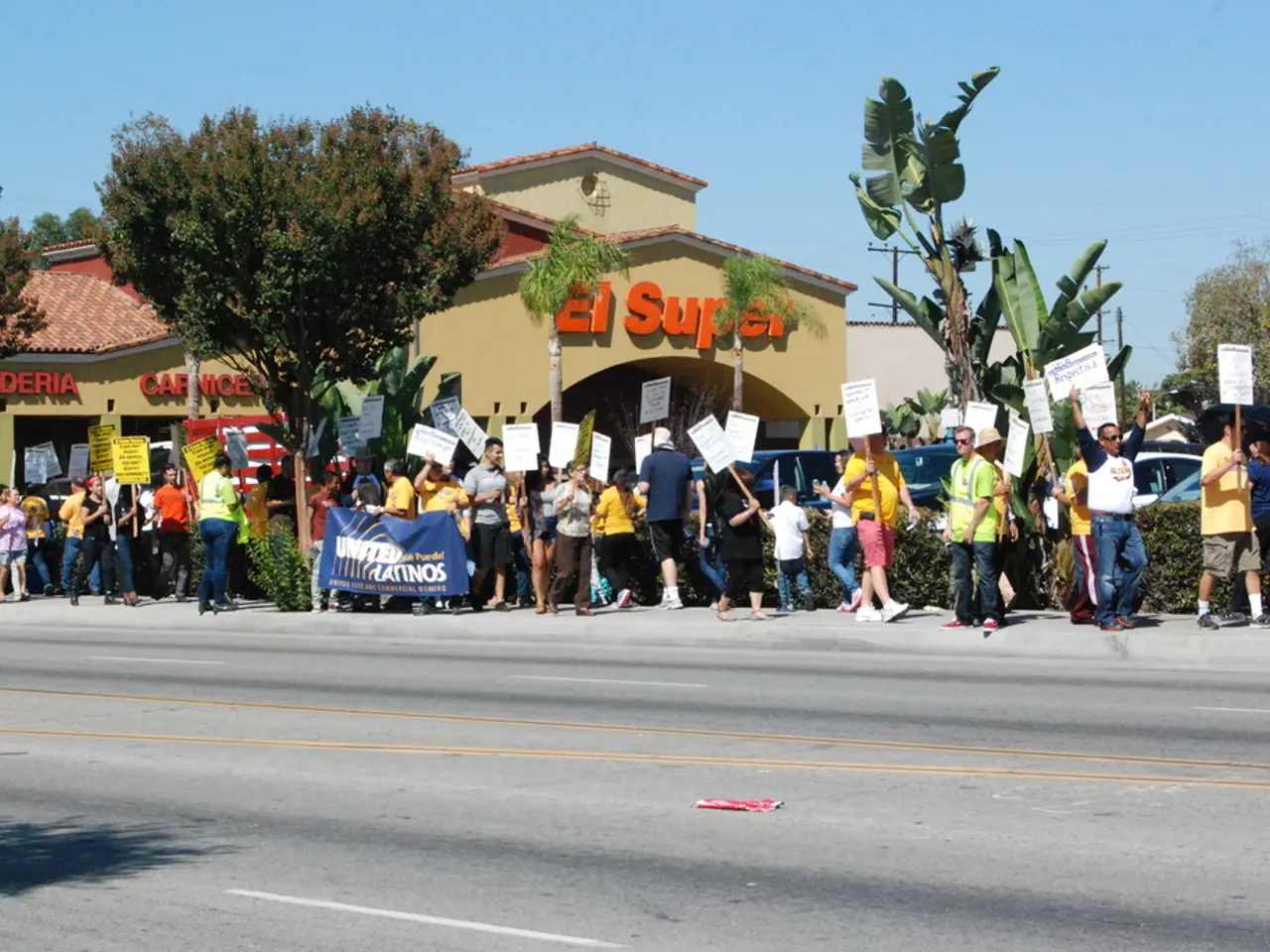Strategies for Minimizing Misinformation and Malevolence in Electoral Campaigns
In the run-up to elections, the spread of misinformation and hate speech can pose a significant threat to democratic processes. To combat this, a multi-faceted approach is required. Here are some effective strategies that can help:
1. **Early Warning Systems**: Implementing early warning systems to detect and track misinformation as it spreads is crucial. This can be achieved through partnerships with research groups and setting up online reporting systems for election workers and citizens to report suspicious content.
2. **Collaboration with Fact-Checking Organizations**: Collaborating with fact-checking organizations and media outlets helps counter misinformation quickly and effectively. By amplifying credible information and debunking false narratives, these organizations can play a vital role in maintaining the integrity of the election process.
3. **Empower User Choice**: Allowing users to have control over their online environment is another effective strategy. Users should be given the option to opt into or out of certain types of content, including controversial or sensitive material, thereby reducing the spread of misinformation and hate speech.
4. **Influencer and Community Engagement**: Building a strong community of supporters can help push back against false claims and promote factual information. Identifying external spokespeople who can help in this endeavour can be beneficial.
5. **Use of AI and Open-Source Intelligence**: Leveraging AI and open-source intelligence tools can help monitor and analyze online narratives, enabling the identification and addressing of misinformation campaigns early on.
6. **Education and Verification**: Promoting critical thinking and encouraging voters to verify information before sharing is essential. Tools like browser extensions can help identify suspect stories, making it easier for voters to make informed decisions.
7. **Encourage Diverse Sources**: Expanding the information network to include diverse perspectives from quality sources can help in evaluating news more effectively and reducing reliance on single viewpoints.
8. **Engagement with Diverse Audiences**: Engaging with a diverse segment of users to test and provide true and helpful information can help in creating a robust and factual narrative.
## Additional Considerations
While these strategies are effective, it's important to approach them ethically and legally. Avoid giving excessive power to governments over speech, as this can have unintended consequences. Instead, focus on community-driven solutions and collaboration with diverse stakeholders.
Regularly monitoring and analyzing online trends is also crucial to stay ahead of misinformation and hate speech campaigns. This includes tracking the activities of influential voices and narratives.
Social media platforms, journalists, fact-checking organizations, election commissions, civil society organizations, and political parties all have a role to play in controlling digital disinformation. By working together, we can ensure fair, ethical, and truthful campaigning and maintain public trust in the democratic process.
- Political parties can collaborate with fact-checking organizations to debunk misinformation related to ads and politics, thereby upholding the integrity of the election process.
- To combat the spread of disinformation on social media during general-news periods, users can be empowered to opt-out of certain types of content, reducing hate speech and misinformation.
- Influencers and community leaders, particularly in diverse neighborhoods, can be enlisted to help spread accurate information about political ads and other news, fostering a robust and factual narrative in the digital space.








